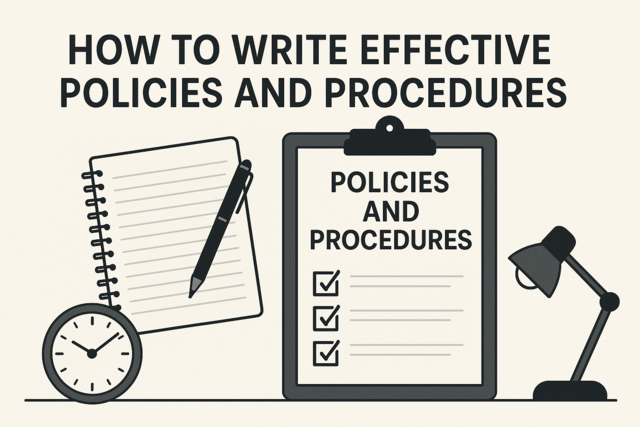Voice Mail: A Necessary Evil
Voice mail saves your customers time. If they cannot afford to wait on hold indefinitely or continue to try to call you throughout the day, voice mail gives them the opportunity to leave a message and let you return their call. Voice mail ensures accuracy because it is an exact recording of what the caller actually said.
The most common complaint about voice mail is that it often does not allow enough time for callers to leave an appropriate, detailed message. There is a fine line between enough time for a detailed message and so much time that callers start rambling. Programming the time on your voice mail system is tricky. You do not want too much "dead air," but if your customers are consistently being cut off mid-sentence, you need to rethink your settings. Some of today's better voice mail systems have an automatic feature that keeps recording until the caller stops talking or hangs up, which is ideal: no wasted dead air, and plenty of time to get their point across.
Proper Voice Mail Greetings
Remember to change your voice mail message regularly. Some customer service representatives record a new message every morning, particularly if the date is essential in their message. You probably do not have to do this, but it is a good idea to record a different message over the weekend or whenever you will be away for an extended period of time. If customers call on a Friday night, they will appreciate hearing, "�I will return your call on Monday, as our offices are closed for the weekend." This way, they don't wait around on the chance you might call Saturday.
There are several elements every message on voice mail should contain:
-
Your full name. If it is difficult to pronounce or understand, repeating it is a nice idea.
-
Your department or company name so that people are certain they have reached the appropriate individual.
-
An alternate name and number, in case the caller has an emergency situation that needs to be addressed immediately.
-
An indication of when you will return the call.
-
An invitation to leave a message, along with an indication of what information you will need from them (usually name, phone number, and a brief message)
Below are a few examples of good voice mail greetings:
"Hello. You have reached Allen Thompson in accounting. I'm sorry I can't come to the phone right now, but I look forward to helping you. Please leave your name, phone number, and a brief message, and I'll return your call by the end of the day. If you need immediate assistance, please call Rhonda Manfreid at 123-777-5222. Thank you."
"Good morning! This is Allison Grant at the Puppy Stop. I'm either on the other line or caring for the dogs right now, but will be glad to return your call. Please leave your first and last name, telephone number, and a brief message, and I'll get back to you as soon as possible. If this is an emergency, you can reach my assistant, Rick Smith, at 987-222-1212. Have a great day!"
Taking Messages
Did You Know?
Almost 60% of customers surveyed reported they would rather leave a message on voicemail or an answering machine than with a secretary, receptionist or another customer service representative!
This is an alarming statistic, but reflects the prevailing opinion that many people aren't good at taking messages. When questioned, the 60% admitted that they feared the message would be inaccurate, incomplete or simply not relayed at all.
Don't let others think this about you! Take the extra time to write the message correctly and let the caller know you will make sure their concerns are addressed properly. Don't act as though you are in a hurry and can't be bothered to take their message.
If you receive a call for someone who cannot come to the phone, let the customer know you are happy to take a message. Do not act like it is a chore or insinuate by your tone of voice that you would rather they just call back. In more than half of these cases, customers will not bother calling again if they cannot reach the party they want to talk to. Do not lose business this way! Take a message and make sure the call is returned.
-
Write down the date and time the person called.
-
Ask for the full name of the caller and, if appropriate, her or his company and/or department. If the caller does not offer a last name, ask for it. Even if the caller says, "He'll know who," ask, "I'm sorry, but could I have your last name just to make sure?"
-
Get a phone number where the caller can be reached. Do not forget the area code. Read the number back to the caller to make sure you wrote it down accurately. When writing down phone numbers, people transpose digits 10 percent of the time.
-
Take a brief message. The key here is brief. You do not want to write down the caller's life story, but you do want a message that is clear and concise. The message should indicate the topic and what action needs to be taken.
-
Sign every message you take with your name or initials so that the person receiving the message knows whom to ask if clarification is needed.
The message you take may be as simple as, "Please call Mr. Minteer back at 777-541-1781 regarding his latest order of fresh flowers," or it could be more complex, such as, "Fiona in marketing at Ziphora Advertising asked that the proofs be faxed to Simon at 157-321-0909. If you have any questions, call her at 157-321-8723."
If the matter is urgent, note that as well. When colleagues review their messages, it is nice if they can prioritize return calls based on how important each message is.
The copies are also a terrific backup. If someone loses the message slip you provided, you will be able to flip back to the copy and give the person all the information needed. It is a miserable feeling to lose a phone message and know there is someone, somewhere, waiting to hear from you but not being able to do anything about it. Copies of phone messages are also legal protection for your company. Being able to prove who called and what was said may come in handy in the event of a customer dispute.
When Someone Takes Messages for You
You may be the one who regularly has messages taken for you. If so, be respectful of the person who takes your messages. Do not take advantage of a colleague's good humor by constantly ignoring your own phone. Only ask someone to take messages for you when it is an absolute necessity. Remember, you will have to return those calls at some point, which will simply push things back even further.
Review your messages at the end of every day. Waiting any longer can create a stack of messages that you never get caught up on. When sorting through your messages, prioritize them and return the calls or take the appropriate action as soon as possible. If a message indicates a customer was told you would try to call back at a particular time or date, pay attention and follow through. If you do not, it reflects poorly not only on the note-taker who made the promise but on you and your company.
If you can, set aside a particular block of time every day to return phone calls. This may be at the end of the day, before or after lunch, or first thing each morning (for the previous day's messages). Whatever time you choose, be consistent and resist temptation to skip this routine; otherwise, your messages can quickly pile up and customers' concerns may slip through the cracks.
Every year, businesses miss valuable customer service opportunities because they do not pay enough attention to voice mail messages or messages taken by associates. Do not lose customers because of poor messaging skills. Taking excellent messages and addressing them in a timely fashion can save your company a great deal of money and provide incredible value in satisfied customers.

























